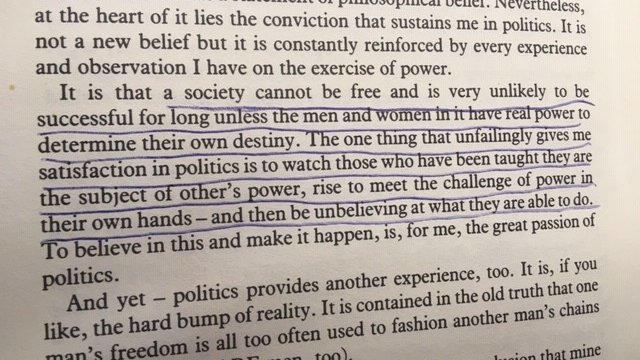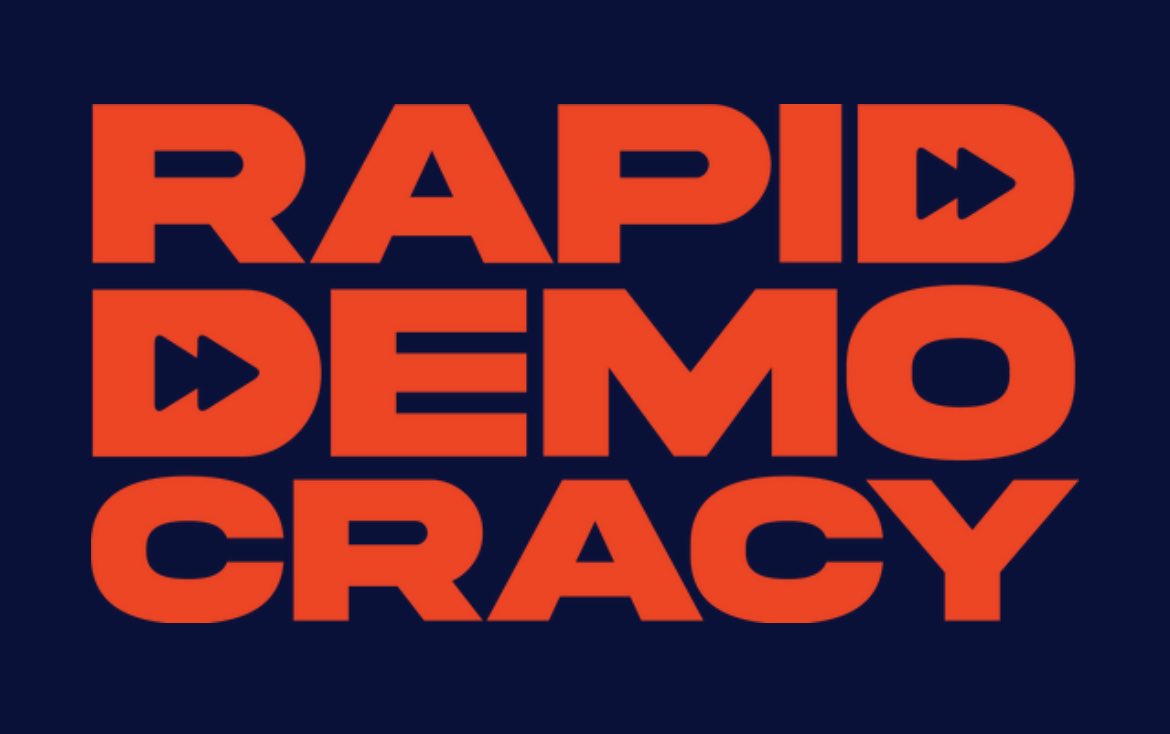I've just published a piece called "Britain needs the Liberal Democrats, now more than ever" via @CompassOffice
Here's your obligatory spoiler/teaser/replacement* thread
(*delete according to preferred social media consumption approach)
Here's your obligatory spoiler/teaser/replacement* thread
(*delete according to preferred social media consumption approach)
https://twitter.com/CompassOffice/status/1207653286876270592
My overarching take is that we @LibDems are the natural party of the "empowered citizen" (Paddy Ashdown's term)
And that in the aftermath of "take back control", this idea is crucial to saving British politics
And that in the aftermath of "take back control", this idea is crucial to saving British politics
My starting point is Paddy's 1989 book Citizens' Britain, which I was first pointed to by @EdwardJDavey - and in particular this quote... 

The @LibDems failure in this election was to my mind a failure of purpose
We forgot why we exist - to champion the empowered citizen - and got embroiled in the wrong battles as a result
We forgot why we exist - to champion the empowered citizen - and got embroiled in the wrong battles as a result
That diagnosis draws heavily on my work with @DatapraxisEU during the election - you can find more in the conclusions to this report I co-wrote with @paulhilder (published 9 days out from polling day)
dataprax.is/24-seats-where…
dataprax.is/24-seats-where…
But the much more important argument is about the future
The thing is, as anyone who knows me will be aware, the empowered citizen is on the march even without formal political support
This is what we @NewCitProj call the #CitizenShift
The thing is, as anyone who knows me will be aware, the empowered citizen is on the march even without formal political support
This is what we @NewCitProj call the #CitizenShift
I've mentioned @ParticipatoryC @NLGNthinktank @CPI_foundation @CollaborateCIC in this piece - but I could have talked about so many things and so many people
If you need convincing the #CitizenShift is happening, there's (much) more here: drive.google.com/file/d/0B0swic…
If you need convincing the #CitizenShift is happening, there's (much) more here: drive.google.com/file/d/0B0swic…
Now imagine what this movement could become with the generous, open support of a party (NB: not one that attempts to take credit for their work)
It's not all about MPs (tho more of them would be nice obvs)
It's also about peers, councillors, and members...
It's not all about MPs (tho more of them would be nice obvs)
It's also about peers, councillors, and members...
Lib Dem peers will have a major role to play in using the borrowed power of the House of Lords wisely, and potentially introducing a standing Citizens' Assembly
This one's inspired by the Ostbelgien Model:
thealternative.org.uk/dailyalternati…
(Big hat tip to @ClaudiaChwalisz)
This one's inspired by the Ostbelgien Model:
thealternative.org.uk/dailyalternati…
(Big hat tip to @ClaudiaChwalisz)
Councillors are perhaps the most important - @LibDems lead 25 councils across the country, and have hundreds more councillors besides
These people are directly involved in the business of empowering citizens every day
@CllrLizGreen a major inspiration for this point
These people are directly involved in the business of empowering citizens every day
@CllrLizGreen a major inspiration for this point
Then there's us members
Time for all @LibDems to stand up in our communities, I reckon
Many of us are already doing amazing things
Time for all @LibDems to stand up in our communities, I reckon
Many of us are already doing amazing things
The last point is what this means for our relations with @UKLabour
My view:
They need us to make them better
And we do better when they do better
So we need to stop the madness, now
My view:
They need us to make them better
And we do better when they do better
So we need to stop the madness, now
It all adds up to a pretty fundamental shift
It's not where the party is right now
But it is where it belongs
Paddy used to quote Lyndon Johnson:
"Yesterday is not ours to recover, but tomorrow is ours to win or lose"
It's not where the party is right now
But it is where it belongs
Paddy used to quote Lyndon Johnson:
"Yesterday is not ours to recover, but tomorrow is ours to win or lose"
• • •
Missing some Tweet in this thread? You can try to
force a refresh













